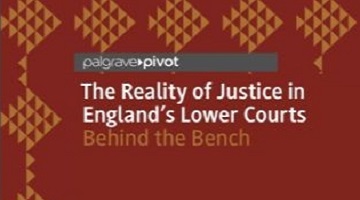Course modules
Discover the building blocks of your programme
Further guidance on modules
Modules are designated core or optional in accordance with professional body requirements, as applicable, and LJMU’s Academic Framework Regulations. Whilst you are required to study core modules, optional modules provide you with an element of choice. Their availability may vary and will be subject to meeting minimum student numbers.
Where changes to modules are necessary these will be communicated as appropriate.
Core modules
Security Studies
20 credits
20 credits
This module delves into the complexities of security, examining how contemporary issues challenge and redefine it. It explores the ethical aspects of sovereignty, international security policy-making, and key themes like the Cold War's legacy, terrorism, weapons proliferation, and the impact of globalization. Security Studies, a vital sub-discipline of International Relations, engages in debates about whether security should include not only military conflicts but also economic, environmental, and social concerns.
Research Methods
20 credits
20 credits
This module will enable you to demonstrate the skills and knowledge you have been developing over the time studying on the programme. It will provide you with the ability to identify a relevant and interesting topic of research, develop and test research questions, and draw conclusions relevant to academia, policy and practice.
Counter Fraud and Corruption
20 credits
20 credits
This module explores the evolving fraud landscape in the digital age, encompassing national and global perspectives. It delves into criminal behavior theories related to fraud and the challenges posed by collaboration, technology, privacy legislation, and policy development in creating effective fraud risk strategies.
Disclosure
20 credits
20 credits
This module introduces students to the following key topics:
- Introduction to the disclosure of Unused Material
- What constitutes unused material
- The nature of sensitive material
- Complex cases and third-party material
- Defence disclosure, defence applications for disclosure and the continuing duty of disclosure
- Consequences of failures in disclosure and key partners
- Best practice in managing disclosure relating to serious organised and terrorism investigations.
- Proceeds of Crime Act (POCA)/Asset Recovery/Money Laundering Legislation
Dissertation
60 credits
60 credits
This module enables students to conduct independent research in cybercrime and security on a topic of their choice (subject to approval). The dissertation should include original research and is supervised individually. It reflects the knowledge and skills gained during the course.
Cybercrime: The Global Landscape
20 credits
20 credits
Cyber Security Foundations
20 credits
20 credits
Students will focus on key concepts in cyber security, its footprint in the current technological landscape, its associated techniques and tactics as well as crime-types and drivers, students will also understand generated evidence whilst applying analytical thinking to investigative practice and techniques.
Students will be encouraged to use reflection and critical analysis to understand and develop their own area within the field of cyber security. Students will explore the history and development of cyber security, through case-studies, to help them contextualise the importance of the discipline.
Course tutors

Ann Stevens
Featured tutors job title
Career paths
Further your career prospects
LJMU has an excellent employability record with 96% (HESA 2018) of our postgraduates in work or further study six months after graduation. Our applied learning techniques and strong industry connections ensure our students are fully prepared for the workplace on graduation and understand how to apply their knowledge in a real world context.
Tuition fees and funding
Entry requirements
You will need:
Qualification requirements
Undergraduate degree
Applicants to the MSc are normally required to possess a good honours degree (normally a minimum grade 2:2) in a criminal justice, policing studies or related social sciences discipline. Any applicant who does not have a first degree must satisfy the programme team of their ability to successfully study at Level 7 through presentation of a CV and a 500 word personal statement. This will support the application and demonstrate appropriate operational experience in the workplace. For these applicants, an individual assessment of their suitability for postgraduate level study will be made by the programme team and may require other available evidence to be submitted as part of the application process. That evidence includes professional certifications and any other continuing education certificates.
Alternative qualifications considered
Specific experience related to cybercrime and security (such as police, military work or private sector) - Relevant professional qualifications In some circumstances applicants who do not possess the standard entry qualifications may be permitted to enrol on the MSc/PG Dip/PG Cert at the discretion of the course leader.
International requirements
Other international requirements
Proficiency in English – where English is a second language you will be required to demonstrate a minimum International English Language Testing System (IELTS) score of 6.5 (minimum 5.5 (6.5 in writing) in each component) or equivalent English language qualification and a Pearson score of 58-64 (minimum 51 in each component for UKVI Purposes) or a Test of English as a Foreign Language (TOEFEL) score of 575. Applications are welcomed from overseas students, and all applicants are considered on individual merit. The course will be taught in English.
In some cases, applicants who do not pass the standard entry requirement may be permitted to enrol at the discretion of the programme leader.
How to apply
Securing your place at LJMU
Your university life
From accommodation and academic support to clubs and societies. Find out what LJMU has to offer.
Related Links
Talk to our students
Connect with a current LJMU student for advice and guidance on university life, courses and more.
See what our students are saying
At LJMU we want you to know you’re making the right choice by studying with us. You can see what our students are saying about their experience with us through their reviews on the following websites:
Related Links
News and views
Browse through the latest news and stories from the university










The University reserves the right to withdraw or make alterations to a course and facilities if necessary; this may be because such changes are deemed to be beneficial to students, are minor in nature and unlikely to impact negatively upon students or become necessary due to circumstances beyond the control of the University. Where this does happen, the University operates a policy of consultation, advice and support to all enrolled students affected by the proposed change to their course or module.















